MOVIE REVIEW – War is a horrible and senseless waste of human life. This is the essential message of Edward Berger’s war film In the West, Unchanged, based on the 1928 German novel of the same name.
First world premiered at the 2022 Toronto International Film Festival and was recently released on Netflix; the film is a powerful indictment of warfare, revealing the physical, financial and psychological toll that the First World War took on the German people. Rather than portraying its characters as glorious heroes bravely fighting for their country or even ending the film on an optimistic note, All Quiet on the Western Front, from beginning to end, is tragic and relentlessly, almost unbearably bleak.
This is the ‘real’ anti-war war film
The original novel by Erich Maria Remarque was a huge international success. The first film adaptation of his highly successful war epic, All Quiet on the Western Front, was made in 1930, followed by a 1979 version starring Ernest Borgnine and Richard Thomas. Berger’s film follows the same basic principles as the classic film but is updated for today’s audiences, with stunning visuals, haunting industrial music and much more violence. This film is not for everyone: the sight of intense carnage and suffering on screen is enough to haunt anyone’s nightmares.
But what is even more distressing is remembering that all these (or even more horrific war events) happened and how many people actually lived through them. As exhausting as the characters’ ordeals may seem, most of us will never fully understand what life in the trenches was like. Not even if the bloody events of the Russo-Ukrainian war that began this year expose humanity to similar horrors.
A profoundly moving insight into the First World War – from a German perspective
Berger’s film is masterfully photographed and paced, offering sharp, evocative World War I images. While there have been some genuinely stunning feature films on the subject in recent years, including Steven Spielberg’s On the Road to War (2011) and Sam Mendes’ World War I films 1917 (2019), Unchanged in the West feels genuinely revolutionary. While most Hollywood war blockbusters (Saving Private Ryan, Dunkirk, etc.) are set during the Second World War and regularly position the Americans and the Allies as heroes against Nazi Germany and the Axis powers, the unchanged situation in The West goes back to that first world conflict. Honestly, it portrays the circumstances that made young Germans want to fight in the war and the disastrous consequences. There are no heroes or heroic events here, only victims and stark, senseless carnage. This is perhaps partly because we get the events from a German perspective, and while there have been examples of this before, maybe only The Submarine managed to achieve it this level of quality.
What makes this war film punchy is the way Berger’s camera shows much of the action from the soldiers’ point of view in its entirety – both the epic, large-scale battle scenes and the quieter, private moments in between.
The boys are fighting in the war
At the story’s heart is a soldier, Paul Bäumer (Felix Kammerer), who, disguising his age, excitedly enlists alongside his comrades. These young men – boys, technically – are actually happy to go to war, joking and singing their way through training. A generation brainwashed by propaganda and authoritarians sees the front as an opportunity for glory and excitement – fighting for their country and seeking adventure. But we, the audience, already know what a vile lie it all is.
Rather than begin the film with Paul’s story, Berger opens with a montage of the endless, faceless death cycle leading to Paul’s entry into the war. In these opening scenes, an unimaginable number of young men are slaughtered on the battlefield. Their corpses are collected en masse, and diligent workers recover salvageable equipment. The uniforms are then washed, repaired and repackaged on industrial assembly lines for the next batch of eager young recruits. It’s the kind of industrial meat grinder approach to warfare that Roger Waters sings about in “The Wall” and doesn’t often feature in this type of film. When Paul gets his uniform, he notices it already has a name tag. He is told that it was sent back because it was “too small” and that this happens all the time. We know the truth is much darker: someone died in that jacket.
Another brick in the wall
In All Quiet on the Western Front, it is evident that the powers that be (the “fat pigs”, as the soldiers call them) don’t care about their soldiers – they care about appearances and pride. The closest thing to evil in the film is a general (played by Devid Striesow) who refuses to admit defeat. He sends his boys to their deaths for no other reason than his patently mistaken belief that it is ‘more honourable’ to die in battle than to starve in retreat – but he, of course, stays behind, plotting his next move from the comfort and safety of his base of operations.
Berger uses clever visuals to emphasise the disparity between the wealthy elite who dictate the war and the young boys who are used as cannon fodder. In contrast to the drab, blue-tinted, unsaturated scenes of Paul on the front line – where the stark reality of impending death is ever-present – are warm, lush offices and railway carriages where men dressed in vibrant colours enjoy hot coffee, fresh pastries and fine wine – all over a crackling, welcoming fire. This subtle effect offers a mature, nuanced perspective on the politics and priorities of the time. What matters is not what the general actually says: what matters is that he is in a luxurious position while his people – many of whom are under 18 – are in poverty. It is not his lying, ideology-soaked words that matter, but the message of his actions.
All Quiet on the Western Front is both Paul’s coming-of-age story and a tragic narrative in the extreme, haunting and cruelly realistic. There is no happy ending here: another soldier takes his place when Paul’s story ends. When one boy dies, another younger recruit arrives to continue the cycle. The armistice ended the fighting, but, as Berger’s film suggests, the circumstances contributed to a politically unstable Germany, setting the stage for the Nazi Party’s takeover and the subsequent outbreak of World War II. The next generation of soldiers is continually fed into the system – whether over months, years or decades – corrupted by a core of lying national ideology and nationalist pride, to be used, abused and then destroyed.
Will this cycle ever end?
It is not a problem that we as a society have moved beyond – just look at the disturbing rise of terrorist groups, white nationalists, and neo-Nazis over the last decade, or compare this film with the Russian dictatorship’s bloody ongoing war against Ukraine. All Quiet on the Western Front wants us to be aware of this absolute, horrifying truth: that we are all still just bricks in the wall and that we can only hope that one day, perhaps, we will find a way to end this cycle once and for all.
-BadSector-
All Quiet on the Western Front
Direction - 9.2
Actors - 9.4
Story - 9.4
Visuels/Action - 9.2
Ambience - 9.4
9.3
AWESOME
It is not a problem that we as a society have moved beyond - just look at the disturbing rise of terrorist groups, white nationalists, and neo-Nazis over the last decade, or compare this film with the Russian dictatorship's bloody ongoing war against Ukraine. All Quiet on the Western Front wants us to be aware of this absolute, horrifying truth: that we are all still just bricks in the wall and that we can only hope that one day, perhaps, we will find a way to end this cycle once and for all.

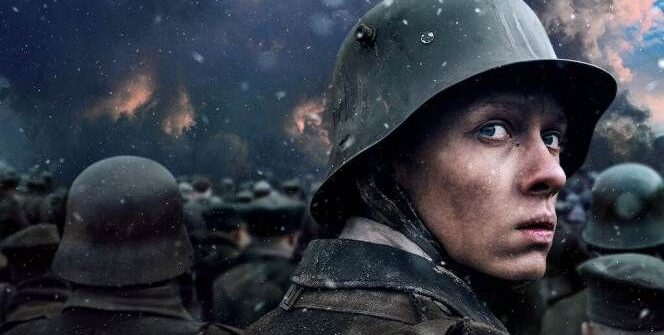
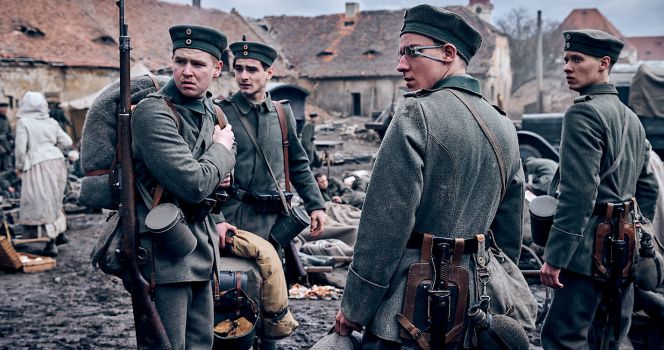
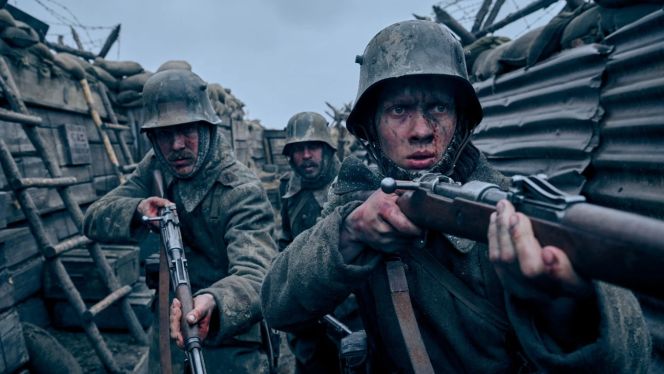
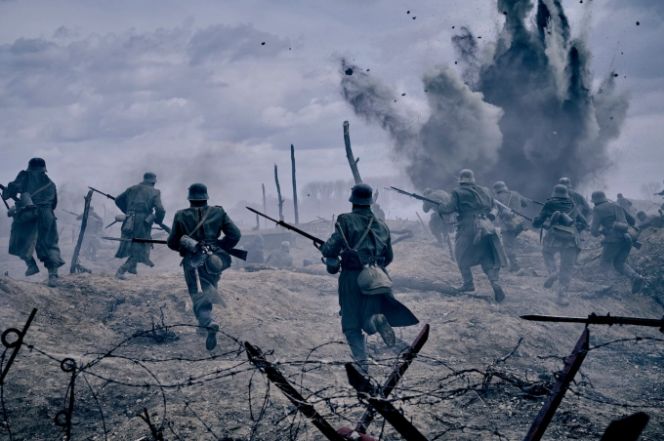
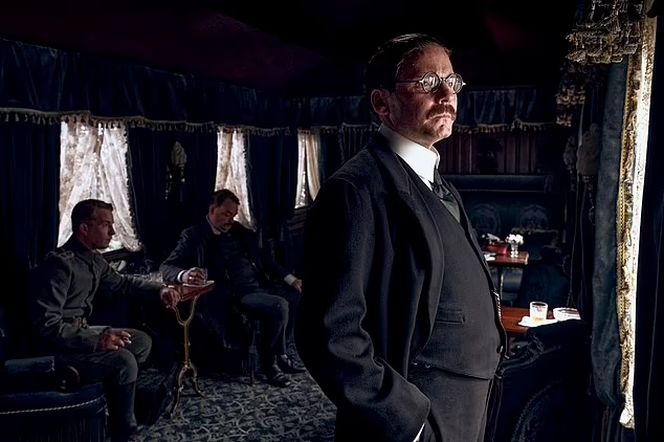





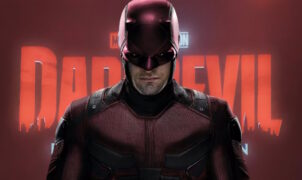





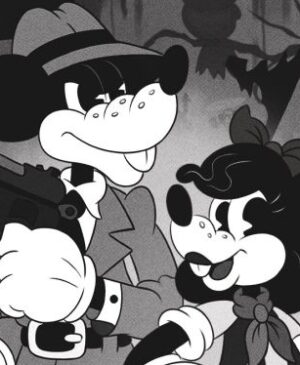


Leave a Reply